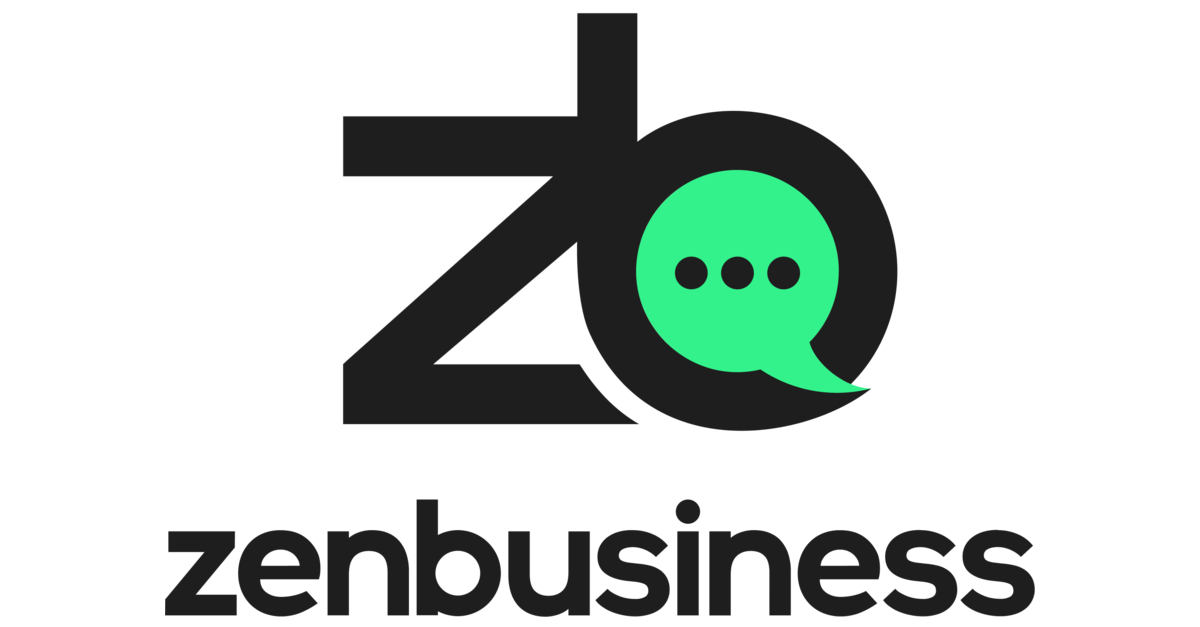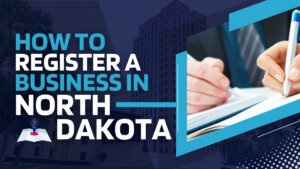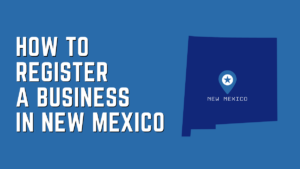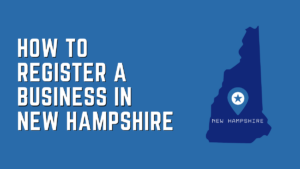Starting a business is exciting, but navigating the registration process in North Carolina can feel overwhelming, especially for first-time entrepreneurs. However, you can easily register your business in the state with the right guidance.
In this blog post, we offer a clear and concise guide to help you effortlessly register your business in North Carolina. We’ll walk you through seven simple steps and provide essential tools to make the process smoother, whether you’re launching a new venture or formalizing an existing one.
Understanding that business registration can be challenging, we’ve highlighted services like Northwest Registered Agent to simplify the process. Let’s dive into the details and easily register your business in North Carolina!
>> Consider Northwest Registered Agent >>
Featured Partner
Northwest Registered Agent
Start with an LLC
for $39 + state fee
Priority Support Team
24/7
Form an LLC online
Fast And Easy
How to Register Your Business in Texas in 7 Simple Steps
When you clearly understand the process, registering a business in North Carolina is a simple task. Follow these seven steps to establish your business in North Carolina.
Selecting the structure for your enterprise is crucial and depends on factors such as your business and future growth plans. This section will delve into the different incorporated and unincorporated businesses available in North Carolina and their operational mechanisms.
You only need to register your business with the North Carolina Secretary of State if you choose a structure that requires incorporation, as elaborated below:
Sole Proprietorship
In North Carolina, a sole proprietorship is the most basic form of business organization, where the owner and the business is considered one legal entity. This means that the owner takes personal responsibility for any debts or liabilities incurred by the business.
Setting up a sole proprietorship is simple and involves minimal legal and administrative obligations. While registering the sole proprietorship with the state isn’t required in North Carolina, obtaining local permits or licenses may be necessary.
General Partnership
In a general partnership, multiple individuals come together to own a business and distribute its profits and losses. Each partner is personally responsible for the business’s debts and legal obligations. While it’s not mandatory to register a general partnership with the state of North Carolina, there may be a requirement to file a “North Carolina Assumed Name Certificate” (DBA) in the county where the business operates.
Limited Partnership (LP)
In North Carolina, a limited partnership comprises general partners accountable for managing the company and facing unrestricted personal liability, as well as limited partners who contribute capital but have restricted liability. To create an LP in North Carolina, submit a “Certificate of Limited Partnership” to the North Carolina Secretary of State.
Limited Liability Company (LLC)
A Limited Liability Company (LLC) is a versatile business structure that merges the liability protection offered by a corporation with the tax advantages and operational ease of a partnership. To establish an LLC in North Carolina, you must submit the “Articles of Organization Limited Liability Company” to the North Carolina Secretary of State and draft an Operating Agreement that outlines how the company will be managed and owned.
Corporation
In North Carolina, there exist two types of corporations that offer limited liability protection and are recognized as separate legal entities from their shareholders.
- C-corporations
- S-corporations
To register a business in North Carolina, submit either the “Articles of Incorporation For-Profit Corporation” or the “Articles of Incorporation Nonprofit Corporation” to the North Carolina Secretary of State, depending on the type of business you have. Additional formalities for corporations include creating bylaws, issuing stock, and holding regular meetings for both the board and shareholders.
Choose a business structure that best meets your needs in terms of liability protection, taxation, and management responsibilities. If you need help with this decision, seek advice from a legal or business professional.
>> Check Out Northwest Registered Agent >>
Step 2: Select a Unique Business Name
When it comes to naming your business in North Carolina, there are several options available to ensure uniqueness and compliance. These options include registering a legal entity name, obtaining a trademark, or operating under a different name while still being registered with a legal name. Naming regulations and requirements can vary from state to state, so it’s recommended to verify the specific guidelines for North Carolina.
Just like incorporating your business, the choice of naming approach in North Carolina should be based on the specific needs and circumstances of your entity.
While it may be wise to pursue all three routes to protect your business name from unauthorized use, you also have the option of choosing any of these approaches. While not mandatory, maintaining consistency across all registration methods is advised. Now let’s inspect each naming option available in North Carolina:
Legal Entity Name
Businesses operating in North Carolina must register a legal entity name, which acts as the official identification of the company recognized by the state. This requirement ensures that each business has a unique name and prevents any potential conflicts with other businesses.
The naming regulations in North Carolina include specific guidelines for company suffixes such as LLC, LP, or Corp. It’s mandatory for the registered business type to be accurately reflected in its name. To check if a particular name is available, one can make use of the online database provided by the North Carolina Secretary of State.
Trademark
In North Carolina, a trademark functions to protect the intellectual property of a business name or logo on a national scale. To ensure that the name or logo is safeguarded, conduct an extensive search in the USPTO database to confirm that it hasn’t been registered already.
Once the trademark registration process is successfully completed, it grants exclusive rights and prevents others from using a similar name or logo for similar goods or services. This provides nationwide protection for the owner of the trademark. Remember that obtaining a trademark doesn’t automatically guarantee unrestricted usage of the name or logo in all situations.
Assumed Name (Doing Business As)
In North Carolina, entrepreneurs can register their businesses using an “official” name while conducting business under a different alias. This is commonly known as a Doing Business As (DBA) name.
To do this, one must file an Assumed Name Certificate (DBA) with the county clerk’s office in the area where the business is situated. While federal trademark laws apply to these names, there’s no specific requirement for uniqueness at the state level.
By familiarizing yourself with and considering these various naming options, you can effectively register your business name in North Carolina while also protecting your brand identity.
>> North Carolina Business Registration – Northwest Registered Agent >>
Step 3: Consider Taxes and Other Costs in North Carolina
LLCs based in North Carolina are required to pay multiple taxes, which include:
- Franchise Tax: The flat tax for the North Carolina franchise amounts to $50 and must be paid on the LLC’s formation anniversary. Its purpose is to support several state initiatives, such as education, transportation, and environmental conservation.
- Sales Tax: In North Carolina, a 4.75% sales tax is levied across the entire state. This tax pertains to the purchase of goods and services within the state’s boundaries. Any businesses selling goods or services in North Carolina must collect sales tax directly from their customers and subsequently submit it to the state government for remittance.
- Income Tax: LLCs in North Carolina are considered pass-through entities, implying that income or losses incurred by the LLC are transferred to the member’s tax returns. It’s the responsibility of members to pay income tax on their portion of the LLC’s earnings, irrespective of whether they actually receive any distributions. The state of North Carolina has individual income tax rates that vary from 5% to 7.75%.
Besides the aforementioned taxes, North Carolina Limited Liability Companies (LLCs) may also be subject to local taxes, which include property taxes and fees for obtaining a business license.
If you’re contemplating the establishment of an LLC in North Carolina, it’s imperative that you understand the tax obligations that will be imposed upon your business. It’s recommended that you seek advice from a professional tax advisor who can provide guidance on how these taxes will impact your company.
To simplify the registration process for businesses operating in North Carolina, entrepreneurs have the option to use online services such as Tailor Brands.
Northwest offers a comprehensive range of solutions designed to assist business owners with registering their enterprises. This includes handling all necessary paperwork required by the Secretary of State, facilitating the acquisition of an Employer Identification Number (EIN), and creating an operating agreement tailored to your specific needs.
They offer ongoing support and help with compliance matters to ensure businesses maintain a favorable standing within the state.
>> Register Your Business With Northwest Registered Agent >>
Step 4: Register and Acquire Licenses and Permits in North Carolina
To meet legal obligations, it’s crucial to seek the appropriate licenses and permits for your business activities. Here are the essential guidelines to adhere to:
Tax Registration: If you intend to sell goods in North Carolina, register with the North Carolina Department of Revenue (DOR) to gather sales tax. If you employ individuals within North Carolina, register with the DOR for employer withholding tax.
The registration process can be conveniently carried out through an online platform or by filling out Form NC-BR, which is accessible as a web-fillable PDF document.
Employer Identification Number (EIN): If your company employs individuals or is considered a distinct tax entity, acquire a federal Employer Identification Number (EIN) from the IRS. Although not always obligatory, many banks require an EIN to open business accounts, and other companies may request it for payment processing purposes. You can conveniently apply for an EIN online with no associated filing fees.
Regulatory Licenses and Permits: Different licenses and permits are required for different aspects, including health and safety, environmental compliance, construction, and specific industries or services. To obtain state-issued licenses and permits in North Carolina, you can consult the North Carolina Department of Commerce and Business Link North Carolina (BLNC). For local licenses and permits, check the websites of the cities or counties where your business will be operating.
Professional and Occupational Licenses: Some jobs and careers cause particular licenses or certifications. To gather details about the state organizations in charge of licensing and overseeing these occupations, consult the North Carolina Department of Commerce.
By following these procedures and securing the licenses and permits, you can guarantee that your business operates lawfully and fulfills the standards outlined by governing bodies.
>> Register Your Business With Northwest Registered Agent >>
Step 5: Open a Bank Account for Your Business in North Carolina
After acquiring your EIN, it becomes compulsory to open a business bank account in North Carolina under the legal regulations governing LLPs, LLCs, and corporations. However, sole proprietors and unincorporated partnerships aren’t required to maintain separate personal and business bank accounts.
The process of setting up a business account in North Carolina is simple. It involves visiting your local bank and completing the paperwork. Before finalizing your choice of provider, explore different banks and compare their rates and benefits.
Even if you operate as a sole proprietor or unincorporated partnership in North Carolina, it’s wise to have a dedicated company bank account to keep personal and business finances separate. This will help you avoid potential complications if you decide to incorporate your business in the future.
>> Consider Northwest Registered Agent >>
Step 6: Protect Your Intellectual Property in North Carolina
When registering a business in North Carolina, it’s crucial to prioritize safeguarding your intellectual property (IP), depending on your company.
For example, most businesses aim to prevent others from using their name and logo without permission. Depending on whether your business involves selling goods or providing services, you may also want to protect the design of your products or the creative works you produce, such as writing, designs, or music.
North Carolina provides different options for protecting your IP, and it’s advised to take action promptly to secure your exclusive rights.
Trademark
In North Carolina, a trademark is defined as a recognizable symbol, word, phrase, or design that sets apart a product or service from similar ones in the market.
To gain legal safeguarding, trademarks must go through registration with the United States Patent and Trademark Office (USPTO). The registration procedure typically takes about four to six months to finish. Once registered, the trademark enjoys nationwide protection and enables legal action against any unauthorized usage.
Businesses in North Carolina have the option to protect their trademarks by registering them with the USPTO. This not only ensures brand and reputation preservation but also gives them legal recourse if anyone uses their trademark without permission.
Copyright
In North Carolina, the law concerning copyright safeguards original pieces of work like literature, drama, music, art, and certain other intellectual creations. This includes written material, software programs, online content, movies, audio recordings, images, and various forms of creative expression.
When you produce a new piece in North Carolina as the creator or author thereof copyright protection is automatically granted to you. As the owner of exclusive rights to distribute your work through reproduction or by creating derivative works and selling them commercially, you possess full legal authority to control how your work is used.
However, it’s advisable that you register your copyright with the U.S Copyright Office for legal protection and evidence of ownership. When registering your copyright in North Carolina it enhances defense against infringement allegations while providing a means for enforcing your rights through the legal system if necessary.
Patent
If you come up with a new product or piece of machinery in North Carolina, it’s vital to obtain a patent. A patent gives the holder exclusive rights to the item, preventing others from producing, selling, or importing the patented invention for a specific period.
The process of applying for a patent is complicated and can take up to five years to complete. Therefore, it’s advisable to start the process early if you have an original invention that needs protection. Patent applications are submitted to the United States Patent and Trademark Office (USPTO).
By protecting your intellectual property in North Carolina, you can safeguard your brand, products, and creative works. This ensures that your business maintains its competitive edge and continues to thrive.
>> Visit Northwest Registered Agent >>
Step 7: Set Up Your Payment Infrastructure in North Carolina
Establishing a strong payment infrastructure is crucial when registering your business in North Carolina to ensure efficient customer service.
Some payment processing services offer user-friendly interfaces and seamless integration with your website or point-of-sale (POS) system. Well-known options such as Square, Stripe, and PayPal provide flexible solutions that can be easily tailored to meet your business’s specific goals.
These payment processors allow you to accept various forms of payment, including credit and debit cards, ACH transfers, and digital wallets like Apple Pay and Google Pay, among others. Choosing a reliable payment processing service enables your customers to pay using their preferred methods through a secure platform. This guarantees a smooth and satisfactory transaction experience for you and your clients.
Choosing the right payment processor is important, as well as making sure you comply with sales tax laws in North Carolina. You’ll need to get a North Carolina Sales and Use Tax Permit from the Department of Revenue. This permit allows you to collect sales tax on taxable products and services.
A solid payment infrastructure will help your business in North Carolina serve customers effectively while ensuring security. By following these steps diligently, you can establish a legally compliant business in North Carolina and be well-prepared for success.
>> Register Your Business With Northwest Registered Agent >>
Top 6 Business Registration Services for Entrepreneurs in North Carolina
In North Carolina, individuals starting their own businesses or managing small enterprises can take advantage of a variety of business registration services.
These services provide valuable help in the registration process, helping entrepreneurs establish their businesses smoothly and adhere to all relevant state and federal rules and regulations. Below, we have highlighted some of the leading business registration services currently available in North Carolina.
Northwest Registered Agent

Northwest Registered Agent is a reputable online service that focuses on business registration, compliance management, and document filing. They’re known for their high-quality services and outstanding customer support, providing personalized help to help businesses stay in line with state and federal regulations.
Entrepreneurs in North Carolina can rely on Northwest Registered Agent for various business formation services catered to LLCs, corporations, and nonprofits. They have established themselves as a trusted choice in the industry.
>> North Carolina Business Registration – Northwest Registered Agent >>
Tailor Brands

Tailor Brands is a digital platform that specializes in helping companies develop a polished and unified brand identity. Their range of branding packages encompasses logo design, business card design, and social media branding.
Tailor Brands offers an array of design tools and resources for businesses to personalize their own branded assets. Although they aren’t only focused on business registration services, Tailor Brands can aid entrepreneurs in North Carolina by establishing an enticing brand image that appeals to potential and customers.
>> Register Your Business in North Carolina With Tailor Brands >>
BusinessRocket

BusinessRocket is an innovative online platform that provides vital services for registering a business in North Carolina. With its easy-to-use interface and expert assistance, BusinessRocket streamlines the entire process, starting from choosing the right business structure to completing the required paperwork and acquiring relevant licenses.
The platform offers personalized solutions that cater to the unique requirements of each client, guaranteeing effectiveness, affordability, and adherence to state regulations. By utilizing intuitive tools and valuable resources, BusinessRocket enables entrepreneurs to establish their ventures confidently while entrusting administrative responsibilities to industry professionals.
ZenBusiness

ZenBusiness is a digital LLC registration platform that focuses on assisting businesses with various services such as business formation, registered agent services, and annual report filing.
They provide cost-effective pricing options and inclusive packages that encompass personalized help and resources to help businesses stay compliant and facilitate their development. ZenBusiness simplifies the registration process for entrepreneurs in North Carolina through its easy-to-navigate website and efficient procedures.
>> Register Your Business in North Carolina With ZenBusiness >>
Swyft Filings

Swyft Filings is well-known for its efficient business registration services, which include LLC formation, incorporation, and guidance on compliance.
They offer personalized help and valuable resources to help businesses navigate the registration process and meet state and federal regulations. Swyft Filings has created a user-friendly website with affordable pricings, making it easier for entrepreneurs in North Carolina to register their businesses.
>> Register Your Business in North Carolina With Swyft Filings >>
Bizee (Previously Incfile)

Bizee provides a convenient and cost-effective solution for online business registration. Their range of services includes registered agent help, compliance management, and document filing. With its user-friendly platform, Bizee streamlines registering a business. They also offer ongoing support and resources to help businesses stay compliant and thrive in North Carolina.
Entrepreneurs in North Carolina can conduct research and compare different business registration services to find the best fit for their individual requirements. This ensures a smooth and efficient registration process that meets their specific needs.
Business Registration Laws in North Carolina
The North Carolina Secretary of State’s office oversees business registration in North Carolina. The laws and requirements for registering a business may differ depending on the type of entity you plan to establish. Here are a few important factors to consider:
- Business Entity Types: North Carolina acknowledges various forms of business organizations, such as sole proprietorships, partnerships, Limited Liability Companies (LLCs), and corporations.
- Name Registration: Prior to registering your business, it’s essential to select a distinct name that meets the naming criteria established by the Secretary of State. You can verify your desired business name by conducting a search on the website of the Secretary of State.
- Articles of Organization/Incorporation: The necessary filing document for your business formation will vary depending on the type of entity you are creating. For instance, if you’re forming an LLC, you will need to file Articles of Organization. If it’s a corporation, then Articles of Incorporation must be filed. These formation documents typically request details such as the business name, information about the registered agent, the purpose of the business, and its ownership structure.
- Registered Agent: For any company operating in North Carolina to comply with legal requirements, appoint a registered agent who’ll handle all official documents and communications on behalf of the business. The registered agent must possess a physical address within the state.
- Business Licenses and Permits: Depending on the type of business you engage in, it may be necessary to acquire certain licenses or permits at different government levels, including local, state, and federal. The criteria for obtaining these licenses or permits can differ based on factors such as your business, its location, and the industry it operates in. It’s highly recommended you conduct thorough research to identify the specific licenses and permits that are pertinent to your business activities and ensure compliance with all applicable regulations.
- Employer Identification Number (EIN): To meet legal requirements, most businesses in North Carolina will have to acquire an Employer Identification Number (EIN) from the IRS. The EIN serves as a distinctive identification number specifically used for tax-related matters. It’s usually necessary if you have staff members, function as a partnership or corporation, or intend to establish a bank account under the business’s name.
- Business Taxes: Depending on the way your business is set up, you may need to register for different state taxes like sales tax, withholding tax, or franchise tax. For more details about your tax responsibilities, you can consult the North Carolina Department of Revenue.
To make sure that you meet all the legal requirements when registering a business in North Carolina, it’s advisable to seek advice from a qualified attorney or business professional. The website of the North Carolina Secretary of State is also a helpful source where you can find detailed information and access the required forms.
>> Register Your Business With Northwest Registered Agent >>
Alternative Business Registration Methods in North Carolina
North Carolina offers several options for individuals and entities seeking to register a business. Here are three popular methods of registration available in the state.
Online Business Registration
The North Carolina Secretary of State’s office has developed an internet-based system called “NC-BR” (North Carolina Business Registration) which enables individuals to register their businesses. This digital approach offers a convenient and effective means of registering a business, enabling you to complete the entire process online, submit the required paperwork, and make electronic payments for any applicable fees.
Mail-In Registration
If you prefer, you have the option of registering your business in North Carolina using traditional mail-in procedures. To do so, you will need to acquire the registration forms from the office of the North Carolina Secretary of State.
Once obtained, complete these forms with all necessary information and send them, along with any supporting documents and payment, to the designated address. This method may require more time for processing and delivery compared to online registration methods.
In-Person Registration
One alternative is to go to the office of the Secretary of State to register your business in North Carolina. This way, you can directly communicate with their staff, get answers for any queries you may have, and ensure that all the paperwork is submitted correctly. Registering your business in person offers a more customized experience and immediate help if required.
Depending on your business, there might be additional prerequisites or permits that need to be obtained from other government agencies or local authorities. It’s crucial to research and adhere to all relevant regulations and licensing requirements specifically applicable to your type of business.
>> Try Northwest Registered Agent Today! >>
Benefits of Registering Your Business in North Carolina
When you choose to register your business in North Carolina, you open yourself up to a multitude of benefits that can greatly enhance its growth and prosperity. Here are a few significant advantages worth considering:
- Legal Entity Protection: By registering your business as a legitimate entity, such as an LLC or corporation, you gain the advantage of personal liability protection. This ensures that your personal assets are typically safeguarded from any debts or liabilities associated with the business, thereby minimizing your individual risk.
- Credibility and Trust: By going through the process of registering your business in North Carolina, you enhance your credibility and professionalism. This shows that you’re a legitimate organization and can foster trust with customers, partners, and suppliers.
- Access to Funding and Investment: By registering your business, you increase your chances of securing funding and attracting investors. Financial institutions such as banks and venture capitalists tend to favor registered businesses due to the added security and transparency they offer.
- Tax Benefits: Registered businesses in North Carolina can take advantage of various tax benefits. These perks include the ability to deduct specific business expenses, access tax credits and incentives, and enjoy favorable corporate tax rates. To make the most of these advantages, it’s advisable to consult with a knowledgeable tax professional.
- Employee Recruitment and Retention: Registering your business in Carolina has the potential to increase its attractiveness to prospective employees. By becoming a registered entity, you showcase stability and professionalism, qualities that can appeal to high-caliber candidates and improve employee retention rates.
- Access to Government Contracts: By registering your business in North Carolina, you might gain access to government contracts at the state and local levels. These contracts offer a reliable income stream and also present new avenues for growth and development.
- Simplified Business Transactions: By registering your business, you establish a distinct legal framework, simplifying engaging in business dealings. This includes tasks like opening a business bank account, entering into agreements, and managing relationships with suppliers and customers.
- Brand Protection: Protecting your intellectual property rights in North Carolina involves registering your business name and logo as trademarks. This ensures that others cannot use similar names or logos that may confuse consumers. By doing so, you safeguard the uniqueness of your brand and prevent any potential confusion in the market.
- Continuity and Succession Planning: By registering your business in Carolina, you create an official framework that facilitates smooth transition and planning for the future. This process guarantees that your business can continue running seamlessly, even if there are alterations in ownership or important staff members.
- Networking and Support: By registering your business, you become a member of the North Carolina business community. This opens up possibilities for networking, accessing support programs, and connecting with other entrepreneurs, industry experts, and valuable resources that can aid in the growth of your business.
Seek advice from a legal or business expert to grasp the particular obligations and advantages of registering your company in North Carolina, considering your individual situation.
Is Business Registration Required in North Carolina? Find Out Here
Businesses in North Carolina must register with the authorities. The registration requirements can differ depending on factors such as the type of business, industry classification, and operational activities.
Common obligations for businesses in North Carolina include obtaining a Tax ID Number for tax, registering an LLC or Corporation with the Secretary of State, and obtaining any required professional licenses or permits based on the business.
To ensure legal compliance, conducting thorough research to understand the specific registration requirements that apply to your business in North Carolina is essential.
>> Get Started With Northwest Registered Agent >>
How to Register Your Business in North Carolina – Frequently Asked Questions
Bottom Line on How to Register Your Business in North Carolina
Registering your business in North Carolina is crucial for staying compliant with state laws. Choose a business name and legal structure that meets the North Carolina Secretary of State’s guidelines.
Submit the necessary documents and secure any industry-specific licenses or permits required for your operations. A trusted business registration service like Northwest Registered Agent can streamline the process, ensuring you meet all legal requirements without the hassle.
>> Get Started With Northwest Registered Agent >>
Related Articles
Learn How To Register a Business by State
Explore our interactive U.S. map to cultivate your knowledge on registering a business by exploring the unique processes and requirements specific to each state.
 Sections of this topic
Sections of this topic

















